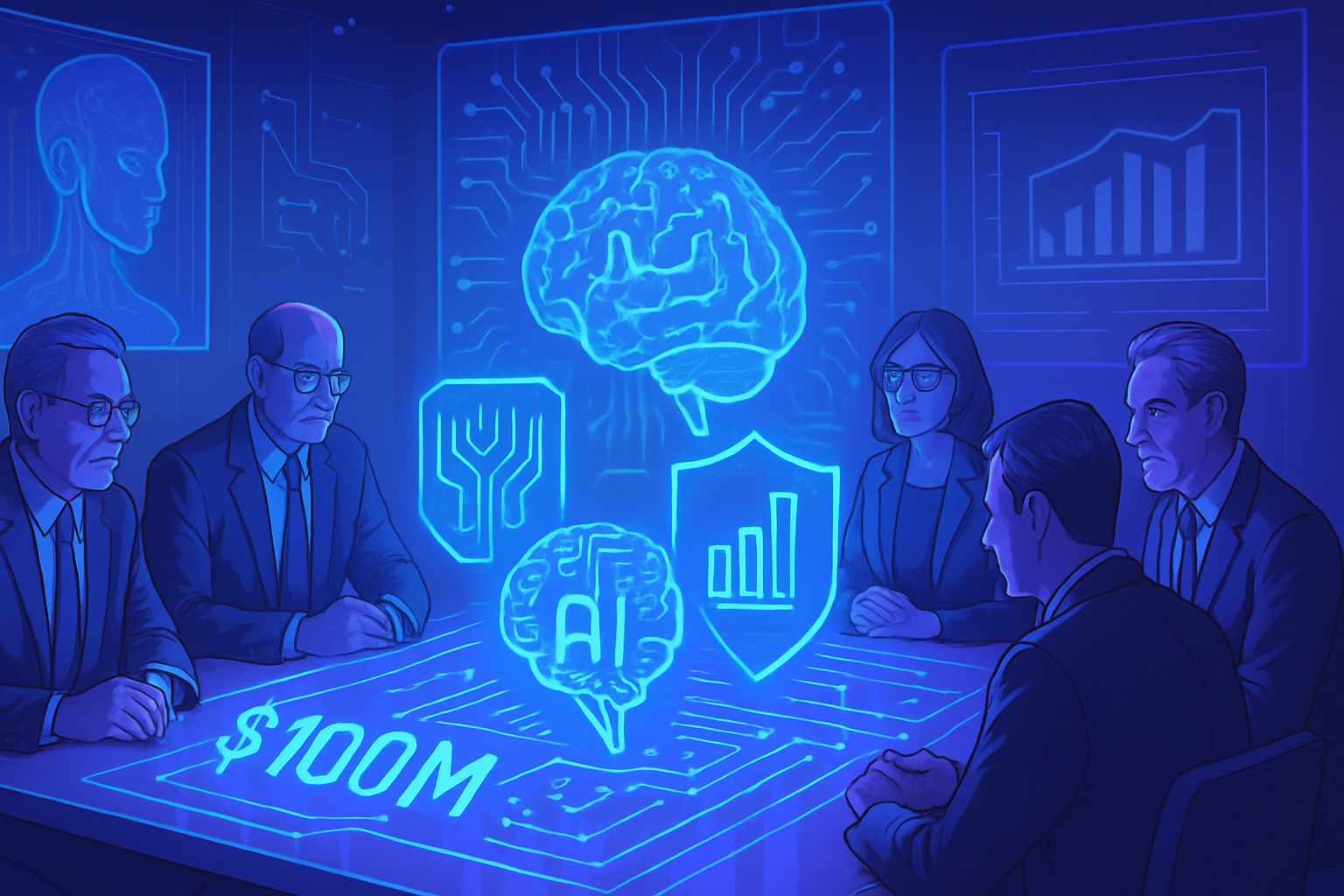Andreessen Horowitz invests 100 million dollars. This generous commitment is part of an assertive desire to influence the regulation of AI. This phenomenon faces major challenges and crucial ethical questions. The necessity for an effective legislative framework is essential to ensure a future where innovation and safety harmoniously coexist. Experts are questioning the role of investors in this dynamic, especially when the social consequences** of poor regulation can be dramatic.
Significant financial commitment
Andreessen Horowitz recently announced an ambitious initiative worth 100 million dollars aimed at influencing the regulation of artificial intelligence (AI). This project is set against a backdrop where the regulation of cutting-edge technologies is becoming increasingly urgent. The venture capital firm, known for its bold investment strategy, aspires to lend a strong voice to the normative and regulatory discussions emerging in the field of AI.
Objectives of the initiative
The primary objective of this initiative is to support projects aimed at shaping regulatory policies around AI, thus fostering a balanced approach between technological innovation and safety. This funding will encourage an ecosystem where innovation can thrive without being stifled by constraining regulations. Andreessen Horowitz also seeks to establish partnerships with think tanks and key stakeholders in this area.
Strategic partnerships
As part of this initiative, the company will highlight its relationships with academics, legislators, and professional associations. These partnerships are expected to facilitate a collaborative approach to identify best practices that could influence the development of laws suited to AI. By leveraging diverse expertise, the firm aims to ensure that proposals are both pragmatic and visionary.
Response to the growing demand for regulation
The rising concerns regarding safety and ethics surrounding AI have led to significant demand for adequate regulation. Governments worldwide, including the European Union, are working on regulatory frameworks. The recently enacted AI law by the EU requires greater transparency for tools like ChatGPT. With its initiative, Andreessen Horowitz aims to position itself as a central player in this evolution.
Potential impact on the industry
This initiative could have profound implications for the AI industry as it seeks to shape an environment where companies can navigate a clear regulatory framework while maintaining their capacity for innovation. The proactive participation of Andreessen Horowitz could minimize the risks of excessive regulation that would harm startups and entrepreneurs in this dynamic sector.
The current context of the AI market
As the AI market continues to evolve rapidly, the issues related to regulation are gaining considerable weight. The United Kingdom, for example, is positioning itself as a hub for AI regulation, as indicated by the British technology minister. Meanwhile, major players like Musk are raising questions about freedom of speech in these discussions. These considerations add a complex dimension to the regulatory landscape, and Andreessen Horowitz’s initiative seeks to address these challenges.
Support for secure innovation
This initiative promises not only to ensure balanced regulation but also to support secure innovation. Innovations in AI must be accompanied by preventative measures to avoid accidents or potential abuses. By encouraging practices such as privacy protection and data security, Andreessen Horowitz could help establish trust standards within the industry.
Conclusion on the implications of the initiative
Andreessen Horowitz’s commitment to this initiative marks a crucial step in the dialogue on AI regulation. Its collaborative approach with various stakeholders and substantial funding should facilitate changes in how policies are crafted. In doing so, the firm aims to create an ecosystem where innovation harmoniously coexists with safety and responsibility.
Frequently asked questions
What is Andreessen Horowitz’s 100 million dollar initiative for AI regulation?
This initiative aims to influence and shape the regulation of artificial intelligence (AI) by investing funds in various projects and research that support the development of balanced and effective public policies.
Why did Andreessen Horowitz decide to invest specifically in AI regulation?
The firm believes that adequate regulation of AI is crucial for the responsible development of this technology, to maximize its benefits while minimizing the potential risks associated with its use.
What types of projects will be funded by this initiative?
Funding may go towards academic research, think tanks, schools of thought in technology policy, as well as startups working on innovative solutions aimed at ensuring effective regulation of AI.
Who will benefit from this initiative in terms of collaboration and partnership?
Andreessen Horowitz will seek to collaborate with academic institutions, nonprofit organizations, and other economic entities interested in AI regulation to promote a constructive and inclusive dialogue.
What impact does the initiative aim to have on future AI regulation?
It hopes to catalyze discussions among policymakers and industry stakeholders to result in regulations that encourage innovation while protecting the public and society as a whole.
How will investments be allocated within this initiative?
Funding allocation decisions will be based on clear criteria, such as the potential impact of projects, their relevance to AI regulation challenges, and the teams’ capacity to successfully implement the proposed initiatives.
Can entrepreneurs and startups submit their projects for funding?
Yes, Andreessen Horowitz will welcome project proposals, particularly those offering interesting solutions regarding AI regulation, and will have a well-defined submission process to evaluate these projects.
What concerns does this initiative address regarding AI regulation?
Concerns include privacy protection, algorithmic ethics, transparency in automated decision-making processes, as well as preventing biases and discrimination in AI systems.






